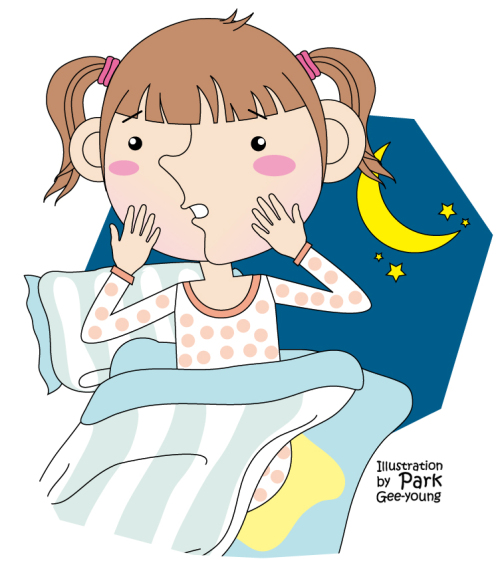
Bed-wetting (also called nighttime or nocturnal enuresis) is fairly common among children and is often just a stage in their development.
Children learn to control daytime urination as they become aware of their bladder filling. Once this occurs, the child learns to consciously control his or her bladder.
This generally occurs by age 4. Nighttime bladder control usually takes longer and is not expected until a child is between 5 and 7 years old.
The number of children who bed-wet varies by age; at 5 years of age 16 percent of children have some difficulty staying dry at night. By 15 years, only 1 to 2 percent continue to wet the bed.
Boys are twice as likely as girls to wet the bed.
Some of the more common causes of bed-wetting include the following: Genetic factors (parents who had enuresis as children are more likely to have children with enuresis); deep sleep that prevents a child from sensing bladder fullness (this theory is controversial); a child’s bladder muscles developing more slowly than usual; the child’s bladder holding a smaller-than-normal amount of urine and medical problems such as diabetes, urinary tract infection, fecal soiling (encopresis), pin worms, kidney failure, seizures and sleep problems (such as sleep apnea) can also contribute to the condition.
You should see your doctor if your child: feels the need to urinate more than usual; is more thirsty than usual; has a burning feeling when he or she urinates; has swelling of the feet or ankles; starts wetting the bed again after being dry for weeks or months. These symptoms can be a sign of a medical problem.
Although most children who wet the bed are healthy, your doctor can help you determine whether your child’s bed-wetting is caused by a medical problem. Important points for you to mention when discussing bed-wetting with your doctor include:
Your child’s daytime and nighttime bathroom habits; problems with daytime accidents; family history of bedwetting; whether your child snores; the impact of the problem on the child and family; any stress at home and at school.
Then your doctor will do a physical exam and probably a urine test (called a urinalysis) to check for infection or diabetes. A child who has daytime bladder problems or abnormal findings on urinalysis or physical examination may need further testing.
You can try different things at home to stop your child’s bedwetting.
Have your child urinate before going to bed. Remind him or her to wake up and use the toilet when needed.
Put night lights in the hall and bathroom so your child can find the toilet easily.
Stop using diapers or training pants at home, especially if your child is older than eight. Your child can still wear those items for overnight visits with family and friends.
Have your child help with cleanup in the morning. For example, he or she can take the wet sheet off the bed or help with laundry. Do not have your child drink a lot right before bedtime.
Bladder training: Have your child hold his or her urine for longer periods of time before urinating during the day to stretch the bladder so it can hold more urine. Behavioral alarms or medication may be tried if enuresis does not improve with these interventions.
Help your child cope with bed-wetting. It’s important for your child to know that bed-wetting isn’t his or her “fault.” Punishing your child for wetting the bed will not solve the problem.
It may help your child to know that no one knows the exact cause of bed-wetting. Explain that it tends to run in families (for example, if you wet the bed as a child, you should share that information with your child).
Resources: American Academy of Family Physician (www.familydoctor.org,) American Academy of Pediatrics (www.aap.org,) UpToDate (www.uptpdate.com.)
 |
Kim Young-shin |
By Kim Young-shin
The author is a clinical assistant professor of International Health Services in Samsung Medical Center. ― Ed.









